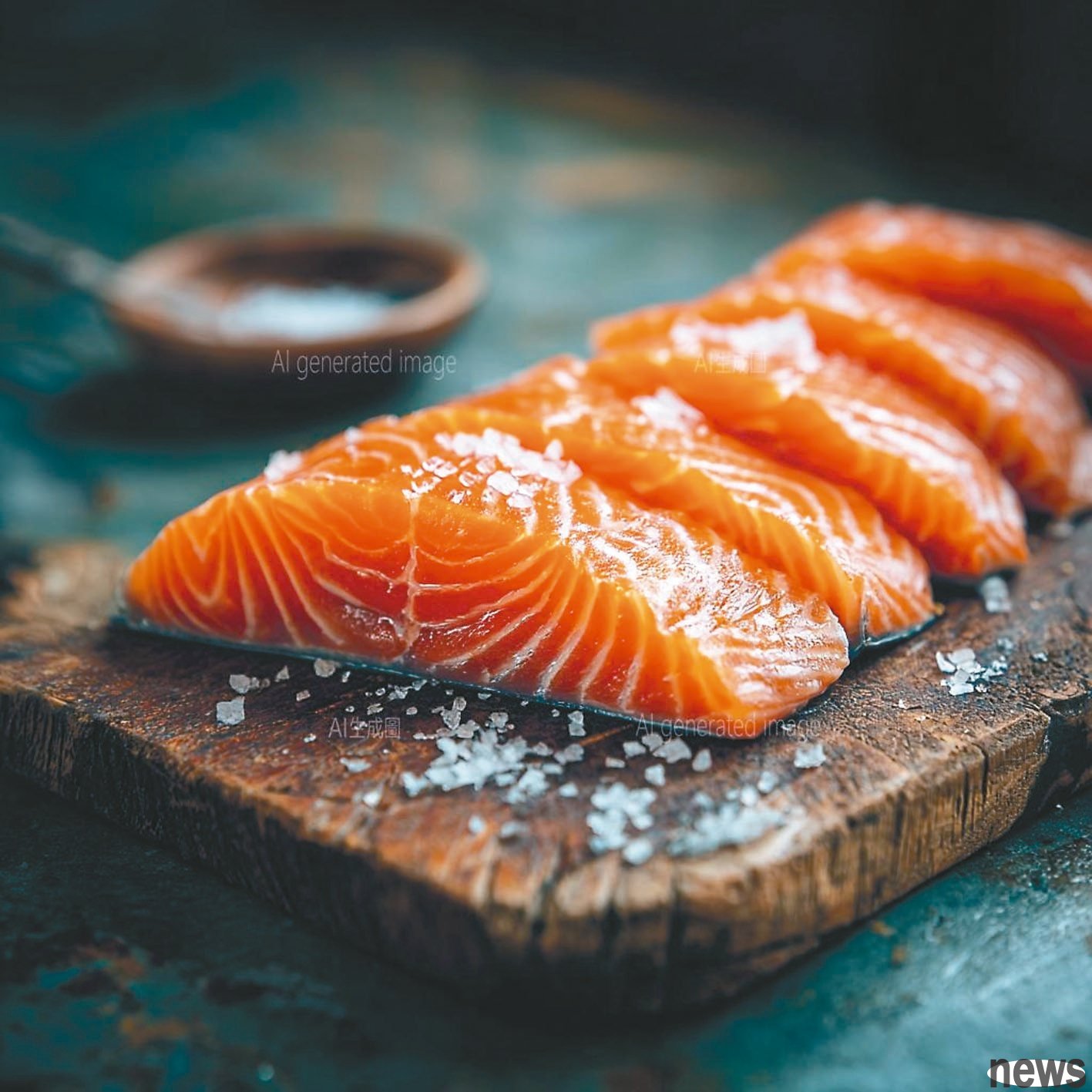
Salmon is the star ingredient of the Mediterranean diet. It is rich in Omega-3 fatty acids, protein and vitamin D, which is helpful for heart, brain and skin health. But despite salmon's reputation as a healthy food, misconceptions abound about it. Several seafood procurement experts and fishery science scholars were interviewed by HuffPost to debunk five of the most common salmon myths.
Myth 1Fresh salmon is definitely better than frozenWhen buying salmon, many people think that the "fresh fish" in the fish cabinet must be more nutritious and delicious than frozen packaging, but this may not be the case. Jason Hedlund, director of seafood purchasing at Whole Foods Market, pointed out that fresh salmon does not contain more nutrients or flavor than frozen salmon. If it can be eaten within two days, fresh salmon is indeed a good choice, but if you want to have it at home and have it ready for use, frozen salmon is more ideal.
He stressed that most people don’t know that salmon is flash-frozen within hours after being caught, fully retaining its flavor and nutrients. Mark Lang, a professor of food marketing at the University of Tampa, also said: "Frozen salmon may actually be the 'freshest' option because it is kept fresh immediately at the source." If you want to eat salmon regularly to reap the health benefits, he recommends purchasing frozen fish fillets and defrosting them the night before when you want to eat them.
Myth 2Farmed salmon is not as good as wild salmonFarmed salmon is often mistaken for poor nutrition and low quality, but experts unanimously point out that this prejudice is long out of date. Sprouts supermarket seafood manager Doug Varanai said salmon farming, like raising chickens, cows and pigs, is to prevent overexploitation of wild resources.
This negative impression stems from poor breeding conditions in the early 1970s, but standards are now very different. Lang pointed out that most retailers today cooperate with third-party certification agencies to conduct water quality and fish body testing. "If the regulations are violated, the qualification of the farm will be revoked." He suggested that consumers can check the certification specifications of their farmed fish on the websites of major supermarkets.
As for nutritional differences, the nutritional density of farmed and wild salmon is not much different. The main difference is in flavor. Alexander Chouljenko, assistant professor of seafood science at North Carolina State University, said: "Wild salmon has firmer meat and a richer flavor; farmed salmon has more fat, a softer texture, and a mild taste. Some people prefer the oily texture of farmed fish, while others like the richness of wild seafood."
Myth 3Farmed salmon is full of antibioticsMany people avoid eating farmed fish, worried that it contains a lot of antibiotics. Chouljenko pointed out that in the United States, Canada, Norway and other countries, the use of antibiotics is strictly regulated and a drug withdrawal period is required before fishing and selling, so there is no need to worry too much. However, he also reminded that abuse does occur in some countries with loose regulations, so you should look for labels such as "ASC" (Aquaculture Stewardship Council) or "BAP" (Best Aquaculture Practices) when purchasing.
Myth 4Salmon contains high mercury and should not be eaten regularly.Experts clearly point out that salmon is not a high-mercury fish and is safe for normal consumption. "Salmon has a short lifespan and is located at the bottom of the food chain, so it does not accumulate too much mercury." Varanai said that its nutritional value is much higher than the risk of mercury, and pregnant women and children can also eat it with confidence.
Mark LaMonaco, director of seafood purchasing at Wegmans supermarket, said that the mercury content in fish is related to two factors: lifespan and eating habits. Larger, longer-lived, and more predatory fish (such as swordfish and sharks) have higher mercury levels. Salmon live for about three to five years, which is too short a time to accumulate enough to cause concern.
Myth 5Brightly colored fish means fresher.Bright orange fish does not necessarily mean "the freshest". Chouljenko pointed out that the color of farmed salmon mainly comes from astaxanthin added to the feed, while wild salmon also obtain this pigment from eating krill and other foods. Astaxanthin is an antioxidant nutrient.
When selecting salmon, you should pay attention to the smell, texture and appearance: it should smell light and non-fishy; the flesh should be firm but not soft; the surface should be moist and without dull spots or discoloration. These details are the key to judging freshness.
